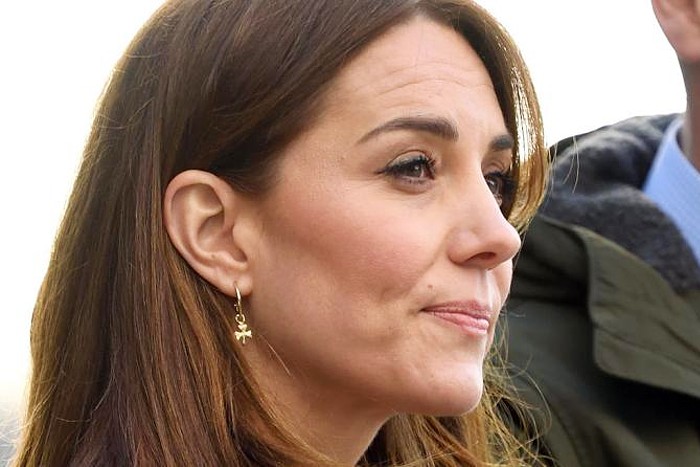

Why HBO's 'True Detective' Is Different From Every Other Crime Drama on Television
By Dustin Rowles | TV | January 13, 2014 |
By Dustin Rowles | TV | January 13, 2014 |
It used to be that the networks were oversaturated with legal and police procedurals, but as the quality television landscape has expanded into cable and streaming services, those police procedurals have evolved into crime-serial dramas, often revolving around one season long case. Some of them have been very good (The Bridge, Broadchurch, the last season of The Killing), some of them have been OK (The Fall) and others have been terrible (The Following, the first two seasons of The Killing). Despite a glut of crime-serial dramas, however, HBO — usually on the forefront of original concepts — introduced yet another one this week in True Detective.
But this one is different. Yes, it’s another serial killer case, featuring Bryan Fuller-like murder scenes. Yes, the character tropes are typical. Rust Cohle (Matthew McConaughey) is a loose cannon, a semi-recovering alcoholic with a troubled past, who is divorced and suffering through the death of a child, and Martin Hart (Woody Harrelson) is a heavy-drinking philanderer, a by-the-books guy who is easily annoyed by his partner, and only faithful to his wife and his religion when it suits him.

But this show is different.
It’s not just the writing behind it (creator Nic Pizzolatto has written all of the episodes) and it’s not just that HBO has made the unusual decision to have the same director, Cary Fukunaga (Jane Eyre, Sin Nombre) tackle all eight episodes, and it’s not just that it features the best performance this side of Bryan Cranston in Matthew McConaughey’s depiction of Rust Cohle.
The reason why it’s different is because the serial-killer case is secondary to the character development. True Detective is about two men struggling with their own demons, who just happen to be working on a serial-killer case together, and it’s that case that brings all of their issues to the fore. The real mystery is not who the killer is (although, it’s going to be fun to see that play out, especially since the pilot episode teasingly implied that Cohle may be behind some, or all, of the killings), but who these men are.

I’ve seen the first three episodes, and I have become less-and-less interested in the case as the series progresses, and more interested in exploring Hart and, especially Cohle. Outside of Cranston, I don’t ever remember seeing anyone totally command the small screen as well as McConaughey does here, inhabiting a character so completely that it’s easy to get lost in his words, though written out, some of his lines may border on facile:
“I think human consciousness is a tragic misstep in evolution. We became too self aware, nature created an aspect of nature separate from itself. We are creatures that should not exist by natural law…We are things that labor under the illusion of having a self, a secretion of sensory, experience, and feeling, programmed with total assurance that we are each somebody, when in fact everybody is nobody.”
Now, out of context, that’s a New Age-y line I might attribute to an Ed Begley Jr. character, or the Tim Robbin’s ponytail character in High Fidelity, but the way it’s delivered by McConaughey, it sings and sears and seeps inside of your brain. There’s a lot more of these philosophical conversations in future episodes — deeper, more substantive — mostly about the existence of God, or lack thereof, but it works not just because McConaughey delivers the lines with a fierce belief in what he’s suggesting, but because they’re also being played off of Harrelson’s salt-of-the-Earth Christian, who — despite dismissing everything that Cohle says — is clearly rattled by his beliefs. Over the course of the early part of the season, this serial killer case evolves into a debate about existence, on man, and on death, and on grief, and what it is that motivates us, on what gets a guy like Rust Cohle — who believes in nothing but his smokes, and his beer — out of bed every morning.
Did Rust Cohle commit any of those horrific murders? Probably not. Who did? I have no idea, and the truth is, I’m not that interested. I’m far more interested in peeling back the layers on Cohle’s character, in finding out what makes him tick, and how much of his nihilistic belief system can I buy into. The actions of the detectives aren’t nearly as important or as compelling as the discussions behind those actions; the interviews (interrogations?) are easily the highlight of what may ultimately end up being the best crime serial of them all.

← A New Album By Johnny Cash? Yes Please! | The Perfect Face: 17 Television Actors Who've Mastered the Art of Facial Expression →
More Like This
'True Detective' May Be Returning, and Oh No ...
Five Shows We Wish the Internet Talked About as Much as 'Game of Thrones'
Three Quick, Obligatory Television Notes
David Cronenberg Knew Crap When He Saw It, and Turned Down 'True Detective's' Second Season
Quentin Tarantino's 8 Best Put Downs from His Insightful 'NY Magazine' Interview

Is The Royal Family Trying to Make It Look Like Kate Middleton’s Dead?
What’s Old Is New Again: Old Hollywood Glamour Glitters at the 2024 Oscars
Al Pacino Presents Best Picture Oscar, Confuses Everyone
The Dangerous Lie Of 'TradWives'
A Legendary Horror Franchise Is Headed To Television
'The Mandalorian' Season 4 Is Probably Not Happening
More Like This
'True Detective' May Be Returning, and Oh No ...
Five Shows We Wish the Internet Talked About as Much as 'Game of Thrones'
Three Quick, Obligatory Television Notes
David Cronenberg Knew Crap When He Saw It, and Turned Down 'True Detective's' Second Season
Quentin Tarantino's 8 Best Put Downs from His Insightful 'NY Magazine' Interview
Reviews